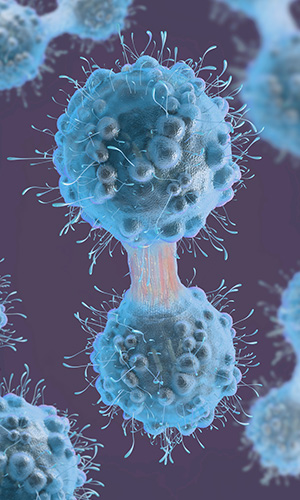Get Easy Health Digest™ in your inbox and don’t miss a thing when you subscribe today. Plus, get the free bonus report, Mother Nature’s Tips, Tricks and Remedies for Cholesterol, Blood Pressure & Blood Sugar as my way of saying welcome to the community!
5 ways melatonin fights aging (besides better sleep)

Has anticarcinogenic properties
Melatonin is well regarded for its ability to scavenge free radicals. These aberrant molecules are dangerous because they often damage cells. Since melatonin is both water and fat soluble, it moves easily through cell membranes, allowing it to clean up free radicals where they can do the most damage. Melatonin has been shown to protect cellular mitochondria, the energy producing factories within the cell. It can even help protect our precious DNA.
Reducing oxidative stress is an indirect way to fight cancer. By scavenging harmful free radicals, melatonin helps protect cells. But melatonin has a more direct impact on the disease. It actually kills cancer cells by inducing apoptosis, the programmed cell death that is often turned off in tumors.
In addition, melatonin inhibits tumor blood vessel growth or angiogenesis. Because cancer cells grow so rapidly, they need a lot of nourishment. Reducing blood vessel growth can help starve tumors. Melatonin has also been shown to reduce symptoms associated with cancer, as well as the side effects from chemotherapy and radiation.












